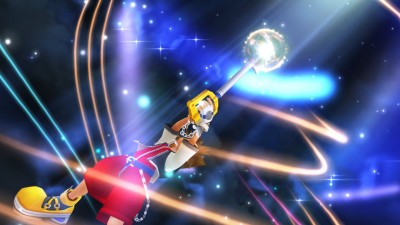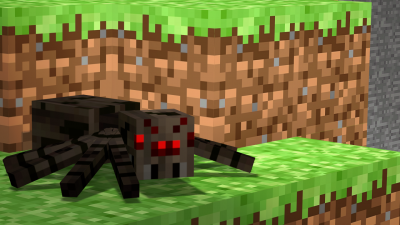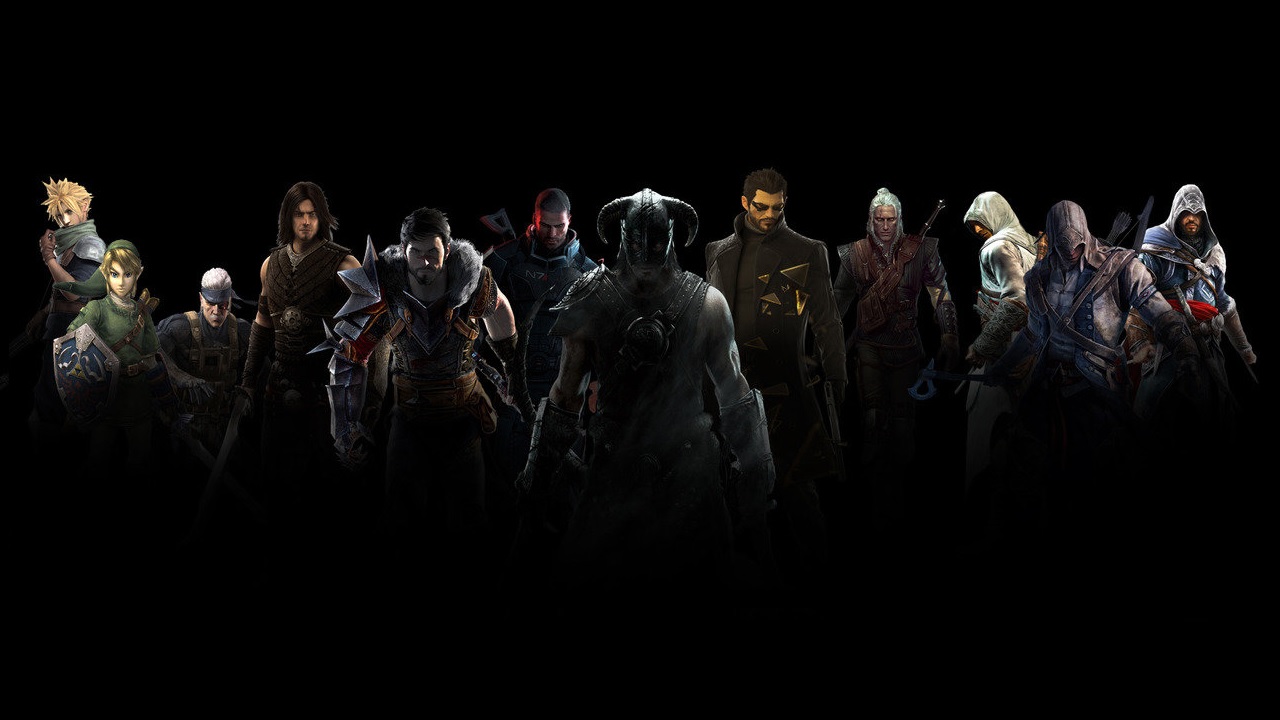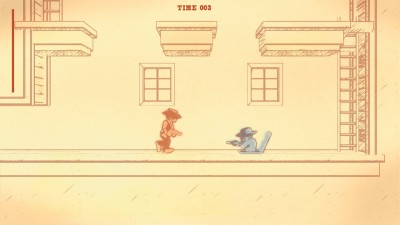I had a conversation with my mother recently about videogames, talking about why and how they’ve become such a massive part of my life.
My mother has never been someone who plays games. Maybe it’s a generational thing, but she’d rather spend her time watching episode after episode of Come Dine with Me or reading through the latest issue of Bella to find out which British chat show host is the latest to be involved some sort of scandal. Which in itself is fine.
For a long time, I harshly judged people who didn’t enjoy playing games. I consider them to be the finest form of entertainment. They offer hours of enjoyment, they can teach us valuable life lessons, and the majority of the time, they are great value for money (argue all you want that some titles are overpriced, but $60 for 100+ hours of entertainment is still one of the best deals you can get. And replay value? Man.)
 But I’ve realized now that people simply have different coping mechanisms in this crazy thing we call life. Videogames have helped me so much: Halo let me take out my frustrations on unsuspecting members of the Covenant, my Dragon Age characters were there to pick up the pieces after a particularly bad break-up, and The Last of Us let me unearth my emotions when I needed to most. To put it simply, videogames have helped me to completely immerse myself in their worlds and completely forget about life’s troubles - even if just for a little while.
But I’ve realized now that people simply have different coping mechanisms in this crazy thing we call life. Videogames have helped me so much: Halo let me take out my frustrations on unsuspecting members of the Covenant, my Dragon Age characters were there to pick up the pieces after a particularly bad break-up, and The Last of Us let me unearth my emotions when I needed to most. To put it simply, videogames have helped me to completely immerse myself in their worlds and completely forget about life’s troubles - even if just for a little while.
When explaining all of this to my mother, she was surprised. For starters, she thought the reason I played videogames was simply down to a learning curve; my dad had owned a PlayStation, and I’d seen him play it so therefore, I had learned how to play games and considered playing games a normality, which I suppose in some ways is true. What shocked her more is that videogames help get me through life by utilizing a sense of immersion, in the same way that crappy television shows and women’s magazines help her forget about everything for a while.
 It’s from here that I introduced her to Dragon Age: Inquisition, which I regard as being one of my all-time favorite games. She loved that she could make her own character, create her own story and pretend to be someone else for a while. She’s still not entirely convinced, but she can at least now appreciate that video games can be a fantastic coping mechanism, and not just a medium which initiates violence at every turn.
It’s from here that I introduced her to Dragon Age: Inquisition, which I regard as being one of my all-time favorite games. She loved that she could make her own character, create her own story and pretend to be someone else for a while. She’s still not entirely convinced, but she can at least now appreciate that video games can be a fantastic coping mechanism, and not just a medium which initiates violence at every turn.
And that’s the main thing that really does bother me about the general public’s attitude towards videogames. A few days ago, headteachers in Cheshire, UK, threatened to report parents to the authorities if they allowed their children to play games deemed to be unsuitable for their age. Chris’ opinion in his piece on the subject says it well enough, so feel free to go and read the full thing.
The most interesting sentence in that article for me however, was this: “Gaming has always acted as a scapegoat for many of the problems with society, yet it’s important to note that these accusations are almost never accompanied by any scientific evidence to support them.”
Interestingly enough, a study was published the day after this news by the University of Oxford, which “could find no link between playing violent games and real-life aggression or a child’s academic performance.” The study did however state that children who played for over three hours a day were “more likely to be hyperactive, get involved in fights and not be interested in school.”
 The more I look into the psychology of videogames and further affirm my beliefs in these areas, the more I believe that the real problems arise from parents simply not having enough knowledge of the games their children are playing. Parents are so quick to blame game developers for creating games which provide escapism and immersion, yet won’t set boundaries on the amount of time their child spends playing.
The more I look into the psychology of videogames and further affirm my beliefs in these areas, the more I believe that the real problems arise from parents simply not having enough knowledge of the games their children are playing. Parents are so quick to blame game developers for creating games which provide escapism and immersion, yet won’t set boundaries on the amount of time their child spends playing.
Minecraft has been at the receiving end of a lot of scrutiny recently. Turkey is considering banning the game for its perceived negative influence over children. Jolyon Jenkins of the BBC wrote an article recently entitled “Should parents ever worry about Minecraft?”, in which he refers to the game as “almost a religion” and quotes a parent who states that the indie game is “all-consuming”, and that her son “doesn’t do any clubs any more.”
“At weekends, one of the first things he says when he gets up in the morning is, ‘We’re not going anywhere, are we?’ because clearly he wants to be at home where he has got access to the devices,” the mother states in the article. Of course, to someone who doesn’t understand videogames, or as a parent going through a similar situation, this may set alarm bells ringing. But my main question is always: “Where are you setting your limitations in this?”. Does your child understand that these games are a treat, something that they can do when they finish their chores or schoolwork? Or are you allowing them to play as much as they want?
Following on from that, my next question is: “How are you, as a parent, getting yourself involved in this?”
 People are so quick to judge videogames without getting to know them. When I was younger, playing Kingdom Hearts on my PlayStation 2, I know that had my parents showed an interest in that area of my life, I would have allowed them to become involved. If my mum had asked me about Okami, I’d have spoken to her about it for hours. If my dad had asked to play against me in Soul Calibur II, I’d have kicked his ass as Ivy. I know that if either of them had wanted to play Ace of Spades on Guitar Hero, experience the emotional rollercoaster that is Shadow of the Colossus or even sing a few songs with me on the Take That expansion of SingStar - yes, I was one of those kids - I’d have let them, simply because they had shown an interest.
People are so quick to judge videogames without getting to know them. When I was younger, playing Kingdom Hearts on my PlayStation 2, I know that had my parents showed an interest in that area of my life, I would have allowed them to become involved. If my mum had asked me about Okami, I’d have spoken to her about it for hours. If my dad had asked to play against me in Soul Calibur II, I’d have kicked his ass as Ivy. I know that if either of them had wanted to play Ace of Spades on Guitar Hero, experience the emotional rollercoaster that is Shadow of the Colossus or even sing a few songs with me on the Take That expansion of SingStar - yes, I was one of those kids - I’d have let them, simply because they had shown an interest.
About ten years later, my dad still doesn’t talk to me about videogames. He’s much more interested in how my day-to-day job is, or how my college work is coming on. But my mum takes such an interest - and it means more to me than I can explain. Even as a twenty-year old, that my mum is taking the time out to try and understand what I do, even if she doesn’t fully appreciate it, is such a great feeling. I can only imagine that as a child, when you’re terrified of the years to come and what they have in store, the feeling is even more euphoric.
I’ve never personally seen the appeal of Minecraft, but I can appreciate that it’s a game that allows for massive amounts of creativity, surely something that should be seen as a positive for children. At last years GameCity, I met  some children that had created a Minecraft server and had come to the festival to showcase the work they had been doing. They were in the midst of everything, presenting what they had done along with a whole bunch of indie developers, and had done everything themselves, even having saved up to pay for the stall to advertise their work. It’s something I’d never had the chance to do when I was younger, but Minecraft had given these kids a platform to expand upon their creativity and create a game (of sorts) that they were immensely proud of.
some children that had created a Minecraft server and had come to the festival to showcase the work they had been doing. They were in the midst of everything, presenting what they had done along with a whole bunch of indie developers, and had done everything themselves, even having saved up to pay for the stall to advertise their work. It’s something I’d never had the chance to do when I was younger, but Minecraft had given these kids a platform to expand upon their creativity and create a game (of sorts) that they were immensely proud of.
It blows my mind that people can then turn around and state that this is a platform which has no validity. Schools are even introducing Minecraft into classrooms as a new means of learning. Places like the National Videogame Arcade are offering summer schools for children to learn about making videogames. It’s also even easier for anyone to create games nowadays, with software like Unreal Engine 4 now being free to use for everyone wanting to bring their ideas to life.
The Fine Brothers, the YouTube stars who created the React series of videos, have recently started uploading videos in which they get elderly people to play video games and comment on them. They’re all pretty brilliant, but the one that I think is the most relevant is their The Last of Us playthrough, which you can view below. Don’t worry, I’ll wait.
Catherine’s final words in the video have stuck with me. For those of you who decided to not watch it, or not watch all the way through, here’s a quick transcript:
It’s quite amazing to me, because it is, it’s like watching a movie, like, and you wanna get up there and be with the characters and say “Oh, I wanna do this, I wanna do that”. And this lets you do that. It’s… it’s pretty darn amazing.
It’s perhaps not the most eloquent sentence when you read it like that, but I think it proves that if you simply experience something, you can begin to understand why people do play videogames, what they can mean to someone and they benefits can provide. It’s naive to think that we as a community can change everyone’s opinion - some people simply cannot see the appeal at all, while others are bigoted and set in their ways, utterly convinced that gaming is a blight on society.
But the more we start talking openly about these subjects, and drawing attention to the good both the medium and the community can do, rather than focusing on the bad, the sooner we can move forward. Videogames are a completely viable and absolutely wonderful platform which can do a near-infinite amount of good for people. People simply need to step out of their comfort zone, and reach out to see the positives that games can bring for so many of us.
And we’ll only ever convince them to do that if we reach out to them and educate, rather than react angrily whenever someone blames games for society’s problems or says they hold no cultural value.



